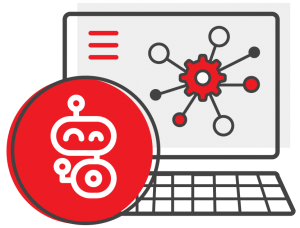How to Develop an AI Marketing Strategy
Artificial intelligence (AI) has the potential to revolutionize the way businesses approach marketing. By automating certain tasks and providing valuable insights, AI can help companies save time and resources while also improving their marketing efforts. However, before you can start using AI in your marketing strategy, you need to know how to develop a plan that will be effective for your business. Here are some tips to help you get started.
-
Identify Your Goals
The first step in developing an AI marketing strategy is to identify your goals. What do you hope to achieve through the use of AI? Some common goals might include increasing website traffic, improving customer engagement, or generating more leads. By setting clear goals, you can ensure that your AI marketing efforts are aligned with your overall business objectives.
-
Determine Your Target Audience
Next, you’ll need to determine who your target audience is. This will help you tailor your AI marketing efforts to the specific needs and preferences of your audience. Consider factors such as age, location, income level, and interests when identifying your target audience.
-
Choose the Right Tools
There are many different AI tools available for marketing, so it’s important to choose the ones that are best suited to your needs. Some popular options include chatbots, predictive analytics, and natural language processing. Consider your goals and target audience when selecting your AI tools, and be sure to research and compare different options before making a decision.
-
Collect and Analyze Data
AI is only as good as the data it has to work with, so it’s important to collect and analyze data on a regular basis. This will help you understand your audience better and identify trends and patterns that can inform your marketing efforts. Consider using tools such as Google Analytics or social media analytics to gather data on website traffic and engagement.
-
Test and Optimize
Once you have your AI marketing strategy in place, it’s important to test and optimize it regularly. This will help you identify what’s working and what’s not, and make adjustments as needed. Consider A/B testing different approaches or using machine learning algorithms to optimize your campaigns.
-
Consider the Ethical Implications
As with any technology, it’s important to consider the ethical implications of using AI in marketing. This includes issues such as privacy, transparency, and bias. Make sure you understand the potential risks and take steps to address them in your AI marketing strategy.
Robotic Marketer: A Case Study
One company that is using AI in marketing is Robotic Marketer, a startup that offers a platform for automating marketing tasks. The company’s AI-powered software allows businesses to create and schedule social media posts, send emails, and analyze customer data, among other things.
One of the key benefits of Robotic Marketer is that it saves businesses time and resources. By automating certain marketing tasks, businesses can free up their human employees to focus on more high-level tasks such as strategy and creativity. Additionally, the software’s ability to analyze customer data can help businesses make more informed decisions about their marketing efforts.
However, it’s important to note that Robotic Marketer is just one example of how AI can be used in marketing. There are many other companies and tools that offer similar services, so it’s important to do your research and find the option that best fits your needs.
AI marketing strategies are here to stay
AI has the potential to revolutionize the way businesses approach marketing, and by following the tips outlined above, you can develop an AI marketing strategy that will be effective for your business. Just remember to set clear goals, determine your target audience, choose the right tools


